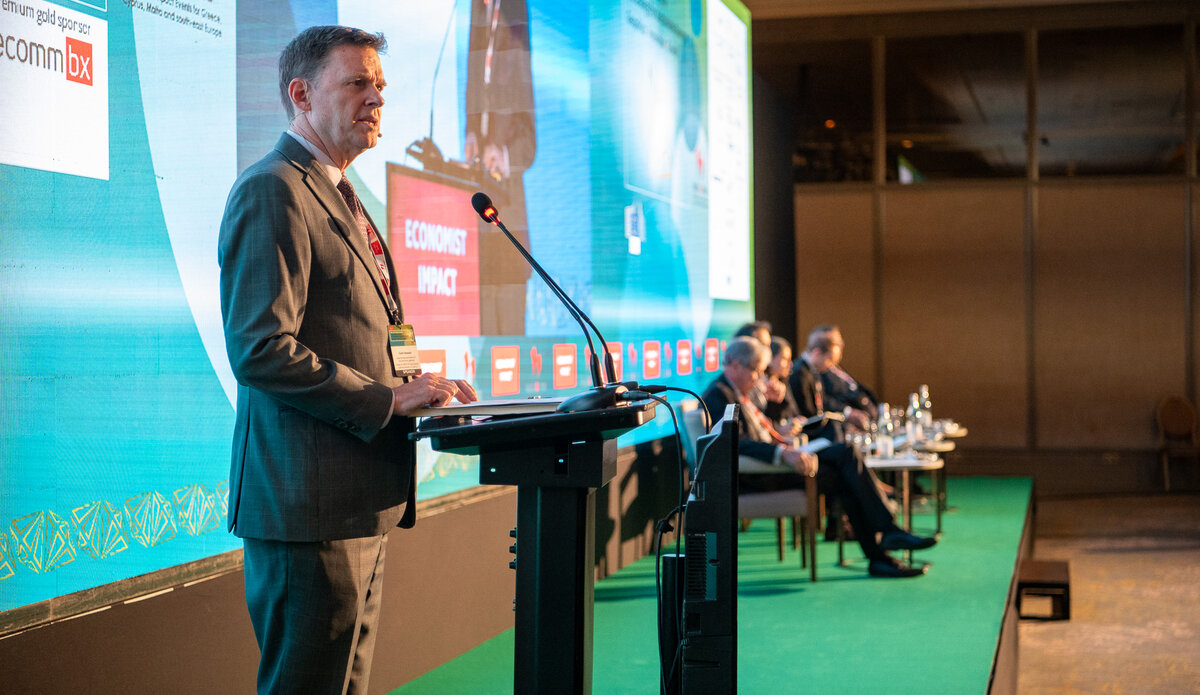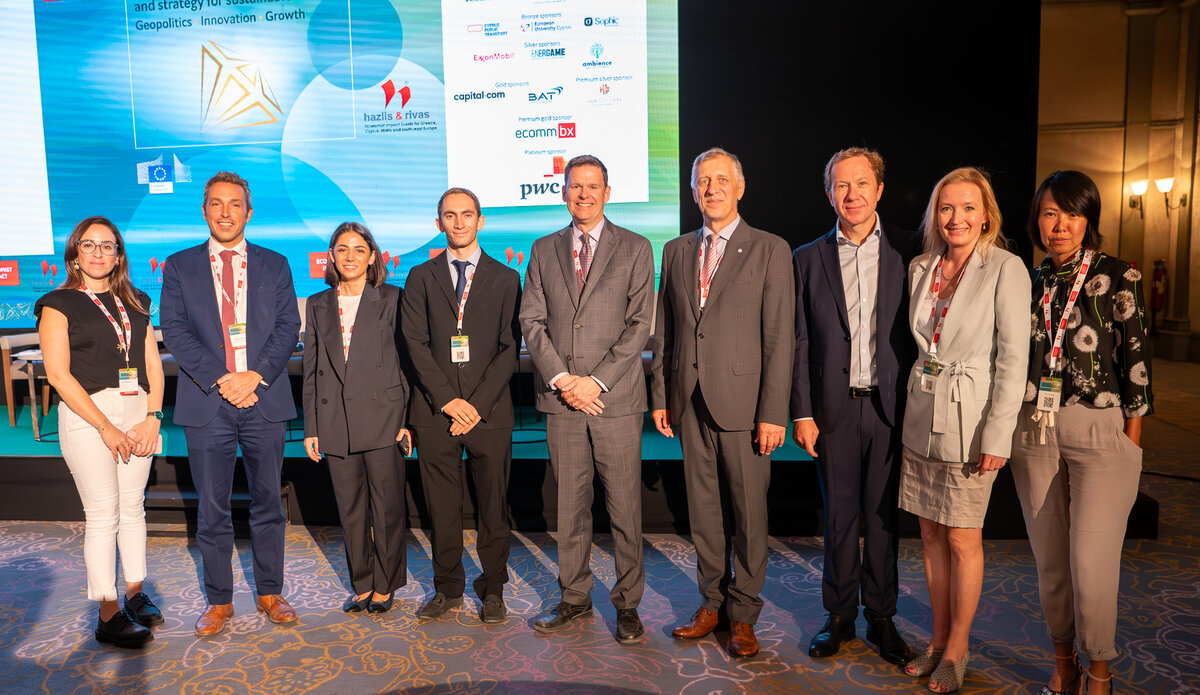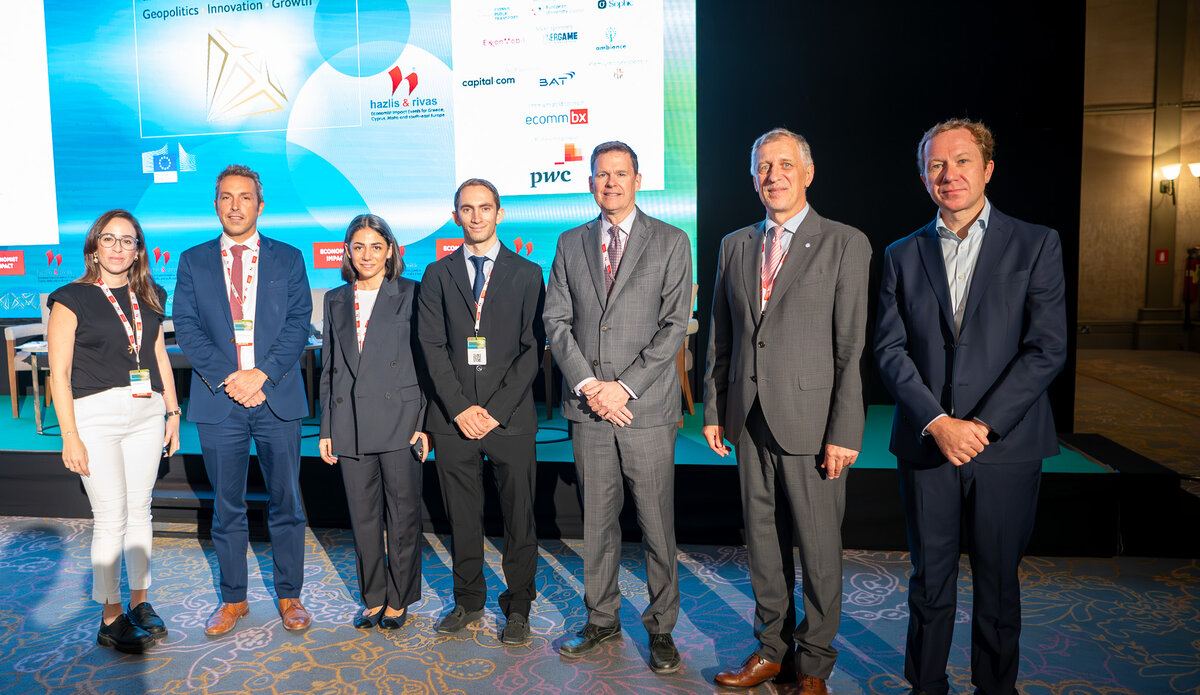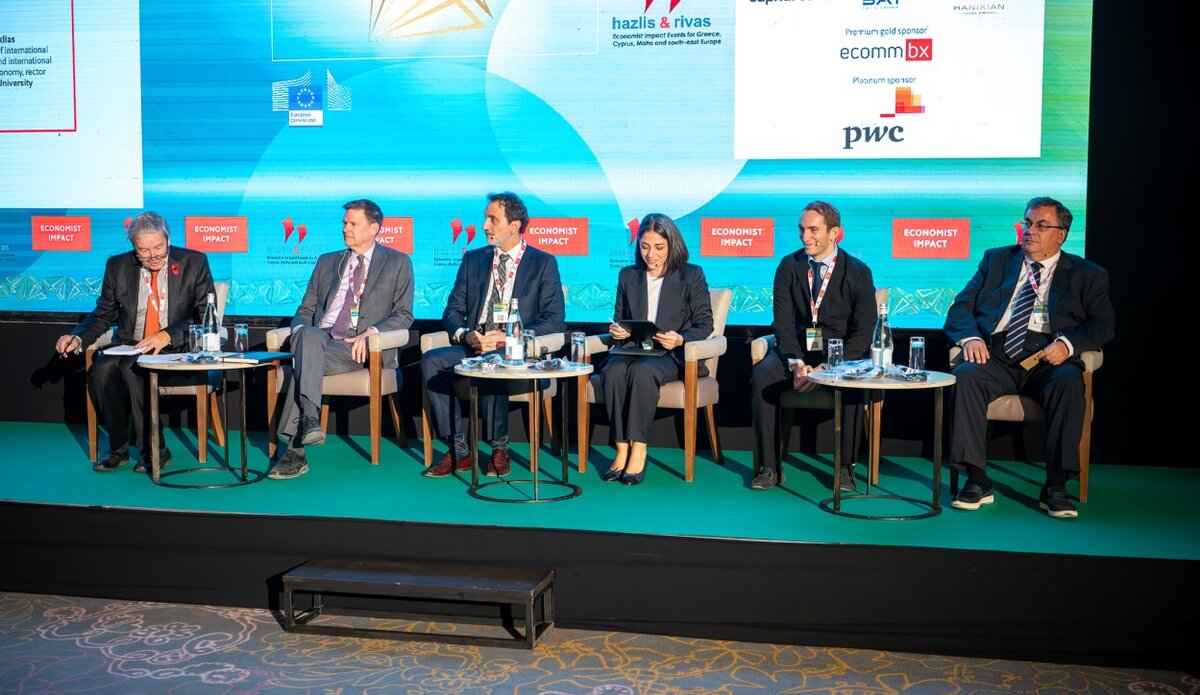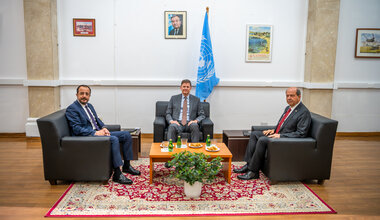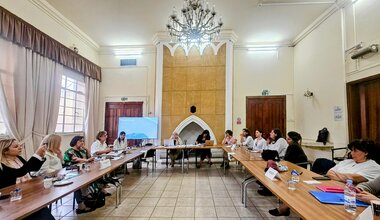Keynote Speech for the 19th Economist Summit by Colin Stewart, Special Representative of the Secretary-General, Head of UNFICYP and Deputy Special Advisor on Cyprus
Navigating the Road Towards Peace
A moment of opportunity - The importance of the two sides working together - Focus on increased intra-island trade and economic connectivity
Good morning, and thank you to the organizers for the invitation, once again, to speak to you about how I see the current moment on the island, and about the ongoing importance of strengthening economic integration across the island in order to clear the path for a mutually-acceptable solution.
We are meeting at a moment of great tragedy and turmoil in the region. We don’t know how the terrible events in Israel and the Occupied Palestinian Territories this past month will unfold going forward, but repercussions are already being felt in the broader region, including in Cyprus. While I would not draw many parallels between that crisis and the Cyprus issue, it nonetheless serves as a reminder that there is really no such thing as a frozen crisis. Here in Cyprus, there is a growing recognition that the status quo is not static, that as long as the Cyprus issue is not resolved, tensions will persist and many opportunities, including economic, will continue to be lost.
In recent weeks, I have been speaking publicly about a few reasons to be hopeful, despite the obvious challenges.
First, from August to October this year, we faced a difficult and sensitive crisis around the bicommunal village Pyla/Pile. Through constructive dialogue and by addressing the concerns of both sides, we were able to come out of it with a very positive consensus on a way forward. There have been some challenges in the implementation which began on October 23, but this is normal in the implementation of such an understanding, and both sides remain committed to seeing it through. If Greek Cypriots and Turkish Cypriots can find common ground on such a tricky and sensitive issue, I see this as a hopeful sign that other difficult issues could be approached with the same constructive attitude.
Conflict and uncertainty are bad for business, so a hopeful sign in the political realm is also a hopeful sign for business.
Secondly, there appears to be a consensus around the appointment of a United Nations envoy for Cyprus, someone to work with the parties on a dedicated basis on the Cyprus issue. This too is a hopeful sign, because many of the challenges and tensions that we, the United Nations, deal with every day in or across the buffer zone are merely symptoms of the larger issue, and they cannot truly be solved until the Cyprus issue is addressed politically.
Furthermore, despite years of discouragement, many local actors and individuals from both sides are showing resilience and continuing to call for a solution to the Cyprus issue. The Famagusta mayors’ event in September – where the mayors from both sides of the divide reached out and embraced each other, coming together in a show of solidarity to lend their voices to the call for a solution – is another poignant and hopeful reminder that ordinary Cypriots from both communities want a mutually-acceptable resolution. This majority view has been confirmed by numerous public opinion polls.
I felt it was valuable to bring the UN’s message to this important venue, as I did last year, because to solve the Cyprus issue, we need to prepare the ground and I can think of no more potent way to do that than to break down the economic barriers between the two sides of the island and integrate the two economies. Rather than keeping the sides separate and watching as the divide grows bigger each year for decades now, removing barriers and enlarging trade would strengthen integration between the sides of the island, strengthen interdependence between the communities, and create a far better environment for solving the Cyprus issue. Expanding trade and business links, in particular, can make the idea of a settlement a tangible reality, paving the way for a political solution. As I have said before, "interdependence is the glue that can hold the island together." Both the EC and WB, who do economic analyses of such questions, have come to the same conclusions, as I am sure they will tell you.
Even leaving aside the underlying issue, a more integrated economy enlarges everyone's market, helps address structural constraints typical of small island economies, reduces external vulnerabilities, attracts more foreign direct investment and tourism, and creates more and better jobs for everyone.
As part of such an approach, we need improvements to the enabling conditions around GLR and intra-island trade, such as efficient crossing points, comparative advantage analysis, resolution of banking-related issues, and the exploration of taxation favorable schemes. The record volume of trade across the Green Line in 2022 was positive step forward. It is important that such trade becomes a truly two-way street.
I’m pleased to be joined by Yaprak and Christos on this panel, who are experienced champions of intra-island business opportunities. Their experiences can help us replicate the positive and tackle the challenges they may have faced.
The other reason intra-island trade is so important is the human one. Trade increases interactions between people, and increased interactions have been shown to increase understanding and openness between them. This is crucial, because there is still a huge distrust – not between individuals so much, but between the groups, especially as represented by their political classes.
You can see this challenge in the unwillingness of both sides, after reaching a consensus (i.e. “win-win”) understanding, to publicly admit that the result was indeed a win-win. There is still a mentality among the political leadership of both sides that they must be seen as not having compromised, but rather having led their side to victory.
Well, mutually-acceptable agreements are only achieved through compromise. Any successful business person can tell you that. As the UN Secretary-General said in September, politics is about compromise, diplomacy is about compromise, leadership is about compromise. Anyone can make easy decisions. Leadership is the ability to make tough decisions.
Gestures that enhance intra-island integration, particularly those with significant economic impacts, bring Cypriots closer and shouldn't necessitate reciprocation. The benefits they deliver are far more valuable as they build confidence in a shared future and thus pave the way for a mutually agreeable settlement.
To address this deficit of trust, confidence-building measures are important. The twelve technical committees established by the leaders to improve the livelihoods of all Cypriots have provided an avenue through which positive steps are taken and tangible things are achieved daily, from intra-island health cooperation to protecting cultural heritage, from managing cooperation on criminal matters to advancing gender equality. With financial support from the European Union, the work these committees do builds a foundation for future talks.
The UN, through UNFICYP and the Good Offices Mission, is also encouraging cross-communal business networks and connections. We have convened a dedicated working group on business, innovation and entrepreneurship to raise awareness of the possibilities and potentials of intracommunal business collaborations.
The working group has also organized several business networking fairs and panel discussions -- the most recent event took place in June with over 200 hundred people representing different businesses and organizations interacting and discussing various topics including women’s empowerment in the economy and the Green Line regulations. The next business fair will take place in January 2024 with a focus on sustainable fashion and local business potential.
It is my firm belief that greater economic activity between the two sides of the island makes good business sense and would have positive impact on the lives of Cypriots on both sides of the island; but more importantly still, each incremental increase in cross-island trade and business will, brick by brick, blaze a path towards a mutually agreeable settlement of the Cyprus issue.
 UN
UN

